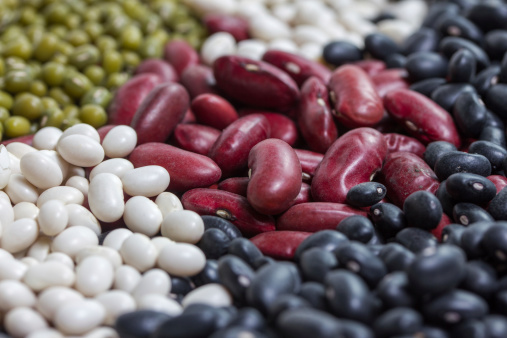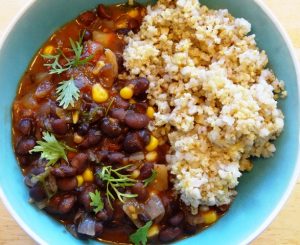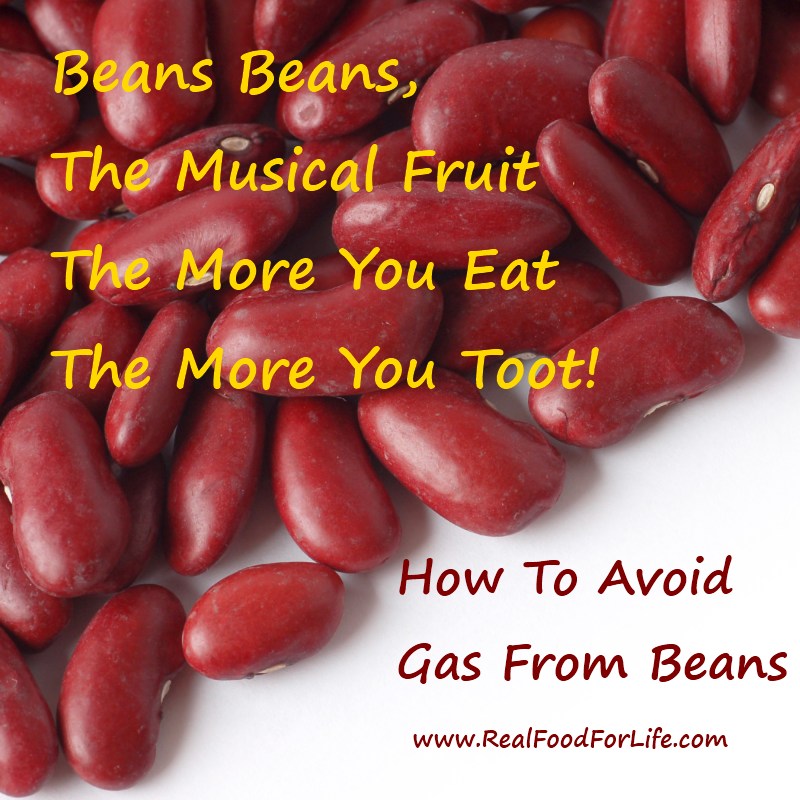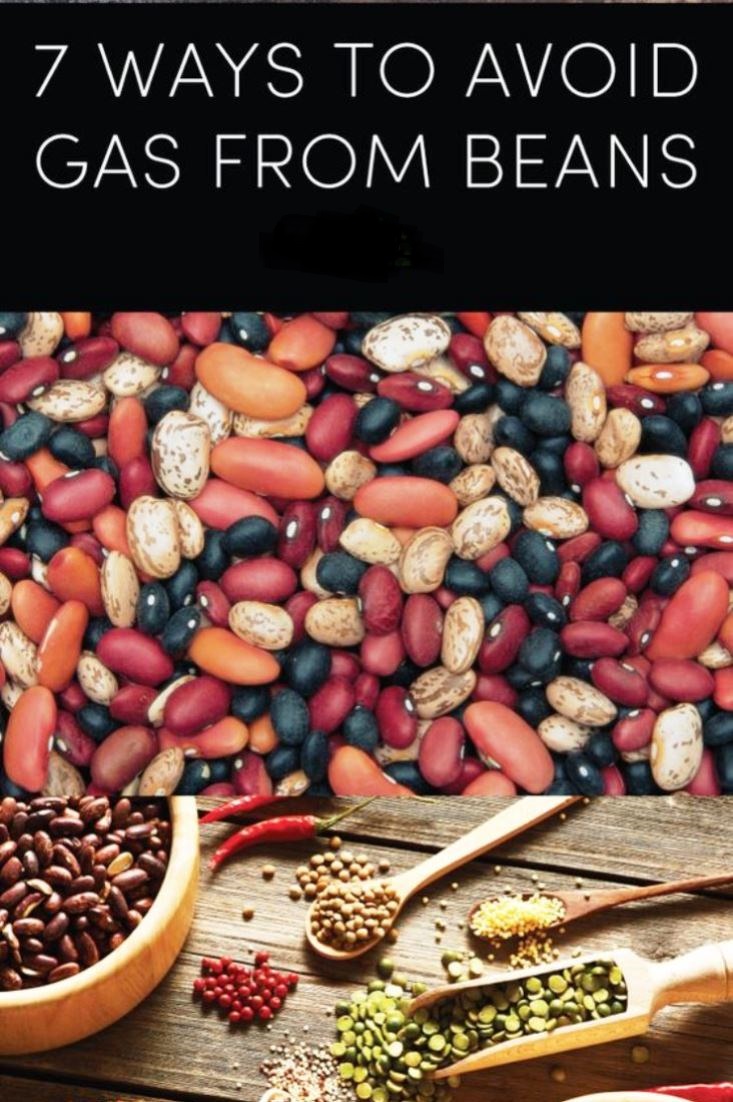Getting gas from beans is a major reason why so many people don’t eat beans. Beans are a superfood and have many benefits for us. There are 1,000 varieties which include beans, peas, lentils, garbanzo bean/chickpeas, and peanuts. Yes, peanuts are a bean.
“Beans, beans,
The magical fruit,
The more you eat,
The more you toot!
The more you toot,
the better you feel
So let’s eat beans
With every meal.”
OK, that was a cute little ditty but really I would rather not be tooting. I am sure you feel the same way. I am happy to say that when I eat a bean dish from beans that I prepared I do not have gas to toot.
Why Eat Beans, Peas, Lentils & Peanuts
-
- High in protein – 1/2 cup (4 ounces) of cooked beans is equivalent to eating two ounces of lean protein. The guidelines recommend that most adults eat about 5 1/2 ounces of lean meat a day.
- Lots of fibre – ½ cup serving of cooked dry beans has 4 to 10 grams of fibre.
- Rich in complex carbohydrates.
- Contain iron, zinc, calcium, selenium and folate.
- Rich in antioxidants.
- Low in fat.
- Provide a low glycemic index.
- Research has shown that the legume family may help to reduce chronic diseases, such as,
heart disease, diabetes mellitus, inflammatory diseases, osteoporosis, depression, obesity, cancer and stroke. - In some Eastern cultures, legumes are and were a basic dietary staple that can be traced back more than 20,000 years.

So why don’t we eat lots of beans?
GAS is the short answer!
The truth is beans do cause many people to have GAS in the intestines for a very real reason.
Beans contain triple sugar, stachyose, a quadruple sugar, raffinose, and a five sugar, verbascose that we cannot digest. We are missing an enzyme that is required to break down these sugars down. When the beans get to the colon; the bacteria in the colon begins to ferment these sugars producing gas in the process.
If you gradually increase the number of beans you eat over several weeks most people will overcome this provided you do a few simple things in terms of how you cook them and what combinations you eat.
The benefit of eating more of these sugars in beans is that it promotes the growth of intestinal bacteria and these bacteria create an environment in the colon that lowers the risk for cancer.
7 Ways to Avoid Gas From Beans
1. Learn How to Cook Beans: It is easy to cook beans but it requires planning ahead of time.
I am quite fastidious about how to cook beans and lentils as I do not like experiencing the common thing we all associate beans with…GAS! I now feel good after eating beans and lentils because there is not all that gas and smelly farts.
It is easy to cook beans but it requires planning ahead of time. Learn how to cook beans, see my recipe. How To Cook Beans and Lentils To Prevent Gas
2. Eat lots of vegetables, particularly green ones with your beans (75% of the meal should be vegetables). This means not to eat too many beans too.
3. As Beans are slow to digest:
• Eat fruit or sugar foods 2 – 3 hours away from a meal with beans.
• Only eat one protein in the same meal, as each protein requires a specific type and strength of digestive juices.
• Potatoes conflict with the digestion of the beans–so avoid eating them in the same meal.
• Eat a whole grain with beans to compliment them.
4. In Japanese and far East Asia they add a piece of seaweed (Kombu or Wakame) after the beans as it makes the beans more digestible, more nutritious and tastes great!
5. Use digestive spices – in India, they cook ginger, turmeric, cumin, coriander, and sometimes fennel and asafetida with beans to make them more digestible.
6. Chew and savour your beans! Beans and grains are foods where digestion starts in the mouth. Savour the beans in the mouth before swallowing to begin the process of digestion.
7. Start with mung beans, adzuki and dhal as they are easy to digest because they are low in the complex sugars that are easily broken down by the human digestive enzymes. Even invalids can digest these ones.
Should Soda Be Added to Beans?
So often I hear that adding soda to the beans will help with cutting down the gas in them. I did some research and found what the Cleveland Clinic said about this:
“Researchers in India looked at five different types of beans, soaked in:
-
-
- Plain water for six hours.
- Plain water for 12 hours.
- Water with baking soda (1/16 teaspoon per quart) for six hours.
- Water with baking soda for 12 hours.
-
Afterward, they measured the levels of gas-producing substances left in the beans.
They found the fewest in beans soaked for 12 hours. Whether they were soaked in plain water or water with baking soda didn’t matter.”
“But remember not to cook the beans in the baking soda water,” notes Dr. Todorov. “That may cause the beans to lose some of their vitamins.”
If you’re new to beans, start with a small amount and increase gradually by eating them once a week then twice a week etc. Do keep up eating beans regularly so your digestion learns how to digest them.
Ways to include beans, peas, & lentils to your diet:
- Add beans to your favourite vegetable soup or stew.
- Add beans to your salads.
- Instead of the meat in chili and stews add beans.
- Add beans to your favourite rice dishes.
- Consider vegetarian days.
- Plan meals ahead for a week adding beans to the daily menus.
- Try a new legume each week.
Try Making These Tasty Bean Recipes

Chili con Vege recipe – This is my very tasty Vegan Chili recipe which is always enjoyed whenever I serve it. It is very healthy and it is vegan and gluten-free too.
Adzuki Vegetable Bean Stew – This is a simple recipe with one of the easiest to digest beans; adzuki beans. I love Adzuki beans and this tasty stew is filling and delicious.
White Bean and Asparagus Stew – I created this White Bean and Asparagus Stew recipe out for the first time on two dinner guests. That was rather brave! They were good friends, and you never know how some people react to beans.
Delicious Black Bean Stew – This stew is easy to make and filled with nutritious ingredients
Remember…you have to know how to cook them properly. Read Cooking Beans and Lentils
What is YOUR favorite bean recipe?




Thanks–I’m very glad to see the beneficial aspects of beans being promoted! You’re so right–high in protein and fiber, low in fat–just what the doctor ordered. 🙂
There’s an excellent (and funny) blog today about exactly this topic–beans and gas–over at NutritionFacts.org: http://nutritionfacts.org/blog/2011/12/05/beans-and-gas-clearing-the-air/
(NF is an excellent resource. Non-commercial, and provides sources for all research cited.)
I usually make hummus….I have been using lima bean…put it in my soups to thicken. Love beans.
I seriously love your blog.. Pleasant colors &
theme. Did you make this amazing site yourself?
Please reply back as I’m wanting to create my very own
site and would love to find out where you got this from or what
the theme is called. Kudos!
I’ve tried the red lentil recipe but not sure i understood the method correctly. After cooking the lentils for 30 minutes i rinsed them thoroughly then added the 3 cups of water with the remaining ingredients. i’ve just ended up with a watery liquid which only tasted of herbs. After putting in quite a lot of effort i’d really appreciate some help to get the method right! the lentil stew is next and i’ve already rinsed the lentils after cooking them for an hour….. Many thanks
Does adding baking soda to the soaking process help with the gas problem?
Hi Jenny, I have never been a fan of adding soda to beans. Thank you for your question because I added some good information about this. See above. Also, not to get gas it is best to use my recipe: https://www.realfoodforlife.com/cooking-beans/